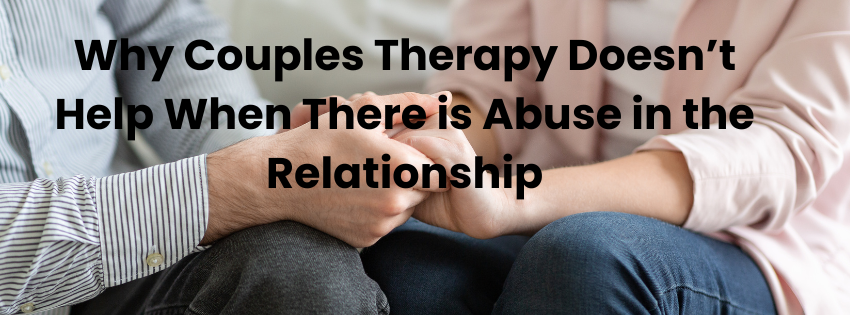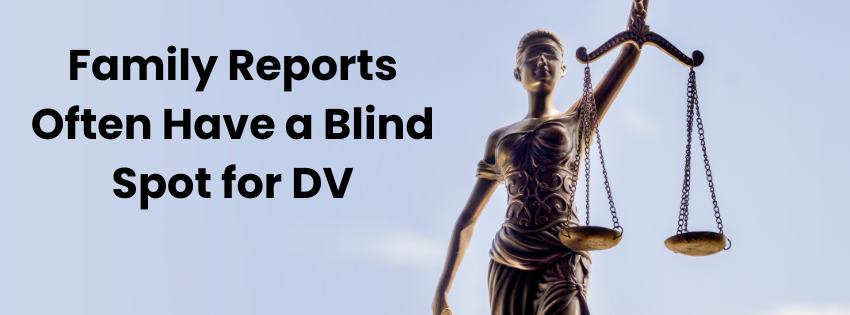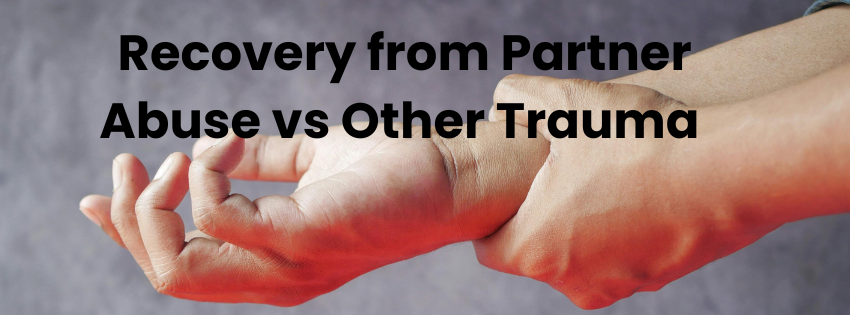In my practice, I frequently work with mothers who find themselves in the family court…

How Therapy Can Unknowingly Empower Abusers and Silence Victims
As a psychologist working in the area of intimate partner violence, I have heard many stories about couples therapy gone wrong and done more damage than good. While it is often seen as a safe space to heal relationships, relationship therapy can be dangerous when one partner is abusive. Various DV agencies explicitly advise against attending couples therapy with an abuser – and for good reason (e.g The US National DV Hotline or Australia’s No To Violence). In an abusive dynamic, the power imbalance makes “working on the relationship” not just ineffective, but potentially harmful.
As Marriage Therapist Albert Dytch puts it clearly:
“One error I encounter with troubling frequency is the failure of couples therapists to assess adequately for partner abuse… Many therapists, including those of us with extensive clinical experience, frequently plunge into doing therapy before we have adequately assessed whom and what we are treating.”
Even seasoned therapists can overlook or underestimate the extent of abuse happening behind closed doors. When that happens, victims are retraumatised instead of helped. Below are five common ways couples therapy can harm and why it’s the wrong choice of help for those in abusive relationships.
Therapists Often Address the Victim’s Reactions, Not the Abuse Itself
Most couples therapists are trained to remain neutral and “see both sides.” While this approach makes sense in ordinary relationships, it’s disastrous in abusive ones. The assumption of equality between partners ignores the core truth: Abuse Seeks to Destroy Equality.
When therapists treat both partners as equally responsible for the relationship’s dysfunction, victims are blamed for “provoking” the abuser or told to manage their own reactions or anger at the way they are being treated. The abuser, meanwhile, avoids accountability. Victims already spend their lives trying to “understand” and “accommodate” their abuser. Encouraging and teaching them to be even more empathetic only reinforces the status quo. After all, abusers exploit empathy—they don’t respond to it.
Therapy Becomes Another Stage for Manipulation
Therapy can become another arena where abusers perform their charm offensive. Abused women have told me that their abuser’s charisma and ability to present well convinced the couples therapist that they were the reasonable one. They’ll use familiar tactics: blame-shifting, gaslighting, and minimising. Some even position themselves as the “real victim,” complaining about how difficult their partner is.
Meanwhile, the actual victim may appear angry, anxious, withdrawn, or highly emotional and dysregulated (which are all symptoms of prolonged trauma). To an unsuspecting or untrained therapist this can look like emotional instability or aggression, reinforcing the abuser’s narrative.
Untrained Therapists Can Further Traumatise Victims
Therapists who lack training in coercive control and domestic violence may unintentionally make things worse. When victims bring their abusers into therapy, they often do so with the hope of “fixing” the relationship. They believe, if they can just find the right words, or the right therapist, their partner will change.
In reality, couples therapy gives ammunition to an abuser – they will start using the therapist’s words and strategies to further manipulate their partner – “Remember what the therapist said, you are projecting expectations from your parents onto me and that’s why you are never satisfied, no matter what I do”. In addition, if an abuser feels exposed or disrespected in the therapy room, they will make sure to re-establish power and control over their partner as soon as they get back home.
Power Imbalances Make Honesty Dangerous
Couples therapy relies on transparency and vulnerability. But in an abusive relationship, honesty can be dangerous. An abused partner who speaks openly risks retaliation once they leave the therapist’s office -emotional punishment, verbal degradation, or even physical violence. Because the abuser still wields control outside therapy, there is no true equality in the room. Victims may censor themselves or deny abuse to avoid consequences.
Abusers Rarely Change
Therapy assumes a baseline of goodwill and a desire for growth. But abusers don’t really want the status quo to change and see therapy not as a path to change, but as a tool to manipulate further. Those high on the narcissistic spectrum are often incapable of true self-reflection. They weaponise therapy language (“You’re projecting,” “That’s your trauma talking”) to gaslight their partner more effectively.
No amount of empathy can transform someone who refuses accountability. And the truth is, without responsibility and a true desire for change, no such will occur.
The Bottom Line
Couples therapy can be life-changing in healthy relationships built on mutual respect. But in abusive relationships (especially with a narcissistic partner) it will more likely reinforce the very dynamics it seeks to heal. Therapists need training to recognise manipulation, assess for abuse early, and prioritise the safety and empowerment of survivors – knowledge and skills that are not typically developed through standard curriculum and general training.
If you’re in an abusive relationship, please remember: You cannot “heal” an abuser by loving them harder or communicating better. Individual therapy with a professional that understands the dynamics of abuse and is trauma-informed, not couples therapy, is the safest, most effective path forward for you.


